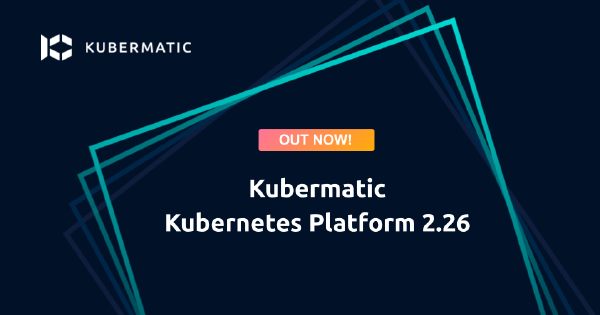


Kubernetes Changing the Location of Linux Packages. What do you need to know?
The legacy Kubernetes Google-hosted package repositories have been deprecated and will be frozen from September 13. What do you need to know about this change and what steps do you need to take?

Kubermatic Kubernetes Platform Earns A Spot In The Capterra Shortlist for DevOps Software
Kubermatic Kubernetes Platform is proud to announce its mention in the flagship report of Capterra, a free online service that helps organizations find the right software. KKP is recognized in the 2023 Shortlist for DevOps Software.

Multi-Cluster Deployment Management with Nephio: A first Guide
Learn how Nephio simplifies complex deployment management across multiple clusters. Follow our guide to set up three Git repositories and Kubernetes clusters for streamlined multi-cluster deployments.

Meet KKP 2.23: Your Gateway to the most Cost-Effective Kubernetes-as-a-Service
Welcome to the world of multi-cloud Kubernetes management excellence! We’ve proud to announce KKP 2.23 which again makes the management of containerized workload in your bare-metal, edge and multi-cloud environment even easier.
Local Kubermatic Kubernetes Platform environment for experiments …

Kubermatic Sponsors CNCF Sandbox Application for kcp, the Control Plane of the Future
When building a scalable, multi-tenant platform like Kubermatic Kubernetes Platform, we think a lot about APIs. How users programmatically interact with our platform is a central key consideration and defines a significant part of the user experience.
We have been leveraging custom resources (as …

What Is KubeVirt and Its Relationship to Kubermatic?
Kubernetes vs Virtual Machines Cloud native is widely regarded as the framework for building applications that are future-ready, and Kubernetes is one of the most critical components of this framework. As an open-source system, Kubernetes enables developers to automate the deployment, scaling, and …

Master Your Cloud Native Deployment for Maximum Control With KKP 2.22!
Today, we are excited to announce the release of the Kubermatic Kubernetes Platform (KKP), available in both Enterprise Edition (EE) and Community Edition (CE). The open-source Community Edition is driven by a passionate community of users from around the world, with some running thousands of …

KubeOne 1.6 Out Now: The Easiest Way To Get Started With Kubernetes
PRESS RELEASE We are excited to announce the release of KubeOne 1.6. KubeOne is completely open source and provides organizations with full lifecycle management of clusters, including provisioning, upgrading, and repairing them whenever necessary. It’s a command line interface (CLI) tool, so it’s …

Maximize Control Over Cloud-Native Deployment With KKP 2.22
Press Release We are excited to announce the release of Kubermatic Kubernetes Platform (KKP) version 2.22 in both Enterprise Edition (EE) and Community Edition (CE). CE is completely open source, while EE boasts powerful features designed to help large organizations get the most out of their …

Changing Paradigms of Operating Cloud, Edge & Hybrid with KKP 2.21!
Today, we announce the latest release of Kubermatic Kubernetes Platform (KKP)- both Enterprise Edition (EE) and Community Edition (CE). The community driven CE is completely open source with users around the world, some of them running thousands of clusters. The EE has exclusive features for large …

Meet KubeOne 1.5 - Now More Adaptable than Ever!
Today, we are pleased to announce that KubeOne 1.5 is now generally available. KubeOne is our open source cluster lifecycle management tool that automates cluster deployment and management in your preferred on-prem, edge, or cloud environment. With this release, we introduce the kubeone local …

Cilium CNI Integration in Kubermatic Kubernetes Platform
With Kubermatic Kubernetes Platform 2.19, we introduced support for the Cilium CNI for both, the enterprise and the community edition of our platform.
